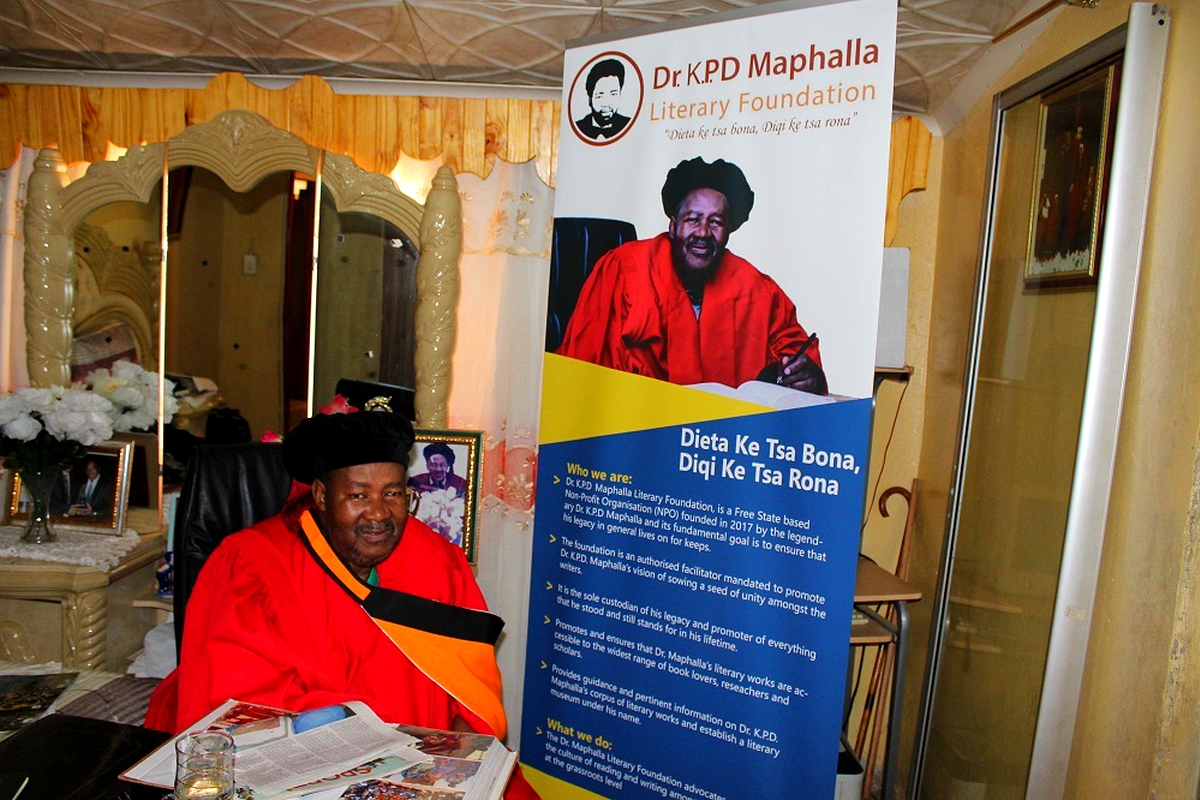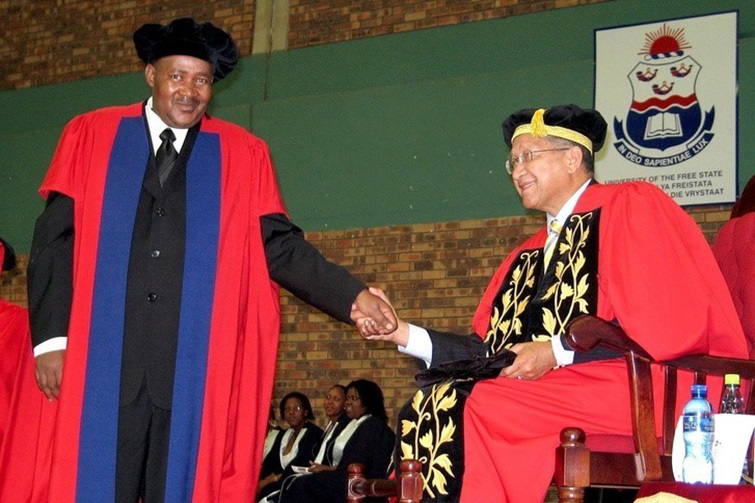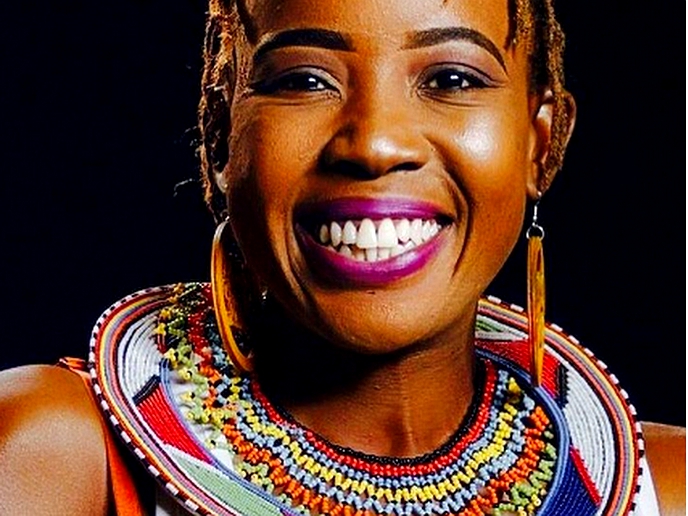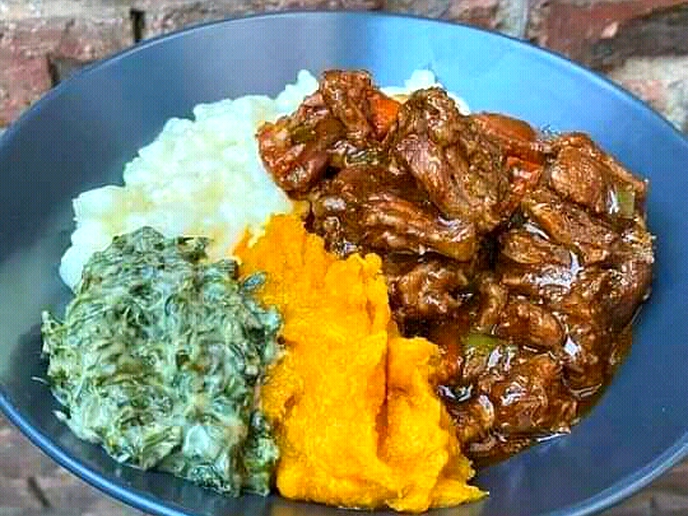LADYBRAND - The late South African Sesotho novelist and renowned poet Dr Khotso Pieter David Maphalla who died earlier this month after he suffered a stroke has been lauded as a towering figure in the Southern African Sesotho literature.
society
April 20, 2021
PULE LECHESA
6 min read
Remembering the late Sesotho novelist Dr KPD Maphalla

The late Dr KPD Maphalla
Story highlights
Tšeliso Masolane from the Sesotho Literature Museum in Bloemfontein described him as a writer with a lot of substance and dexterity.
“He would never write empty lines or lyrics, they would always resonate revolution, always make sure that Basotho know where they come from and ensure that they keep up with that,” Masolane said.
For his part, Dr Nyefolo Malete from the University of Free described the late writer as a staunch political activist who worked hard to fight the past white oppressive regime in his own way.
“As a political activist, through his writings, we realised that in so many books, he was trying to depict the life of an ordinary black man was oppressed by the previous regime.”
In a review of Dr Maphalla’s poetry book, Fuba Sa ka in South African Journal of African Languages: Review Supplement, Vol 5 published in 1985, Professor S Chaphole describes Dr Maphalla as, “a poet of vision and hope”, adding that, “his poetry looks far into the infinity of the future”.
Dr Maphalla, 66, has won an avalanche of literary awards that include an honorary doctorate from the University of the Free State, which was awarded in 2007.
This explains why his books are most frequently discussed and form part of dissertations and doctoral thesis.
The prolific novelist who was popularly known as “Dr KPD” or “Nnake”, started his literary career while studying at Tshiya Teaching College, penning a battery of radio dramas for the then Radio Bantu (later Radio Sesotho and now Lesedi FM) and later went on to produce classical novels, poetry anthologies and plays.
He displayed his journalistic skills by writing insightful articles for two national magazines, Drum and Bona.
Born in Bohlokong, Bethlehem on February 25, 1955, Dr Maphalla was the second child in the family of four. The only son of the late Ntate Solomon Mabusetsa Maphalla and Mme Seipati MmaDineo.
His 91-year-old mother is blessed with longevity. His father passed on in a car accident in 1965 when KPD was only 10 years.
His paternal family tree can be briefly summarised thus; Mabusetsa was born in Matsatsaneng, Ha Koeni Mopeli in Butha-Buthe, Lesotho as the son of Rasephaphali, the son of Thebola, the son of Mosetsanyane, the son of Rantshehele, the son of Peso and so on and so forth. Most of his relatives are scattered across Maseru, Butha-Buthe and Mafeteng.
In his writings, the legendary author could not hide his teeming love for his beloved mother, MmaDineo who survives him - that unbridled love is reverberated in several pages of his book, titled Ditema (Murals), published in 1988.
His father who only passed Junior Certificate (JC) worked as a general worker for the Bethlehem Local Municipality while his mother worked as a domestic worker and later-on as a cleaner at the provincial hospital in Bethlehem.
In his poetry book, Dikano (vows), he once again echoed praises for his mom for having brought him up against all odds. He also heaped her with immense praises in a poem titled, Mme, Moratuwa (Beloved Mom) – through which he also went further to praise other good women.
This author that one of Africa’s best English writers, Omoseye Bolaji describes as ‘a gargantuan and rarefied writer’ put women in general on a pedestal as he grew up surrounded by three blood-sisters who are still alive.
His sisters include Dineo Maphalla, ’Makopano Constance Maphalla Mofokeng and ’Masontaha “Sonti” Maphalla Nhlapo.
Dr Maphallang obtained his primary education in Bohlokong at Thabang Lower Primary and Bohlokong Lower Primary before proceeding to Khanyeng Higher Primary and later Tiisetsang Secondary school where he matriculated in 1974.
Enjoy our daily newsletter from today
Access exclusive newsletters, along with previews of new media releases.

The late Dr Maphalla with former UFS Chancellor Dr Franklin Sonn
Worth mentioning is that as a Standard 8 at Tiisetsang together with his childhood friends - Petros Phatodi, Kenneth Musi and the late Lephosa Mathibela Lephase Mathibela, he co-authored a novel that never saw the light of day.
The title Helang Batho was swayed by Kemuel Edward Ntsane’s book - Bao batho. He was fond of Kemuel Edward (KE) Ntsane’s poem, Hata butle nchanyana (Tread careful my boy) that he used to recite in most events and liked quoting him in his own books.
After matriculating, he entered Tshiya Teaching College in 1975 where he made a name for himself as an outstanding orator during debating competitions. He graduated a year later with a Higher Primary Teachers’ Certificate (HPTC). He began teaching at Tshibollo Secondary School in Qwaqwa where he taught English and History to Standard 9 and 10 (now Grade 11 and 12) learners.
It is also worth mentioning that one of his products is Dr Anna Motsei, a lecturer at the University of the Free State (UFS).
In 1981, he went back to his home township of Bohlokong, Bethlehem where he taught Sesotho at Thabo-Thokoza Secondary School.
In 1983, the former principal at his former high school Chief Minister of Bantustan Dr T.K. Mopeli, a direct descendant of King Moshoeshoe I’s younger brother Paulus Mopeli, roped him in as the Secretary of the Qwaqwa Legislative Assembly, a position he held until 1990 when the assembly dissolved following the end of formal apartheid.
Dr Maphalla released his maiden book in 1982; Tshepo le metswalle (Tshepo and friends) published by Educcum publishers and in its heels, later that year came his Sesotho semi-autobiographical novel, Tsiu Tseo.
In 1986, he became an instant household name after publishing his groundbreaking novel, Kabelwamanong that became a runaway success.
He reportedly won his debut major literary award in 1980 in the Sesotho poetry competition, which was organised by Radio Bantu.
During his illustrious writing career that spanned over four decades, the inexhaustible scribe published more than 50 books.
The late philanthropist and community builder who died on April 3 at the Medi-Clinic in Bethelehem was laid to rest in Bohlokong on April 14.
Owing to the indelible mark he has left in the literary landscape, he was accorded a state funeral.
Tailored for you






